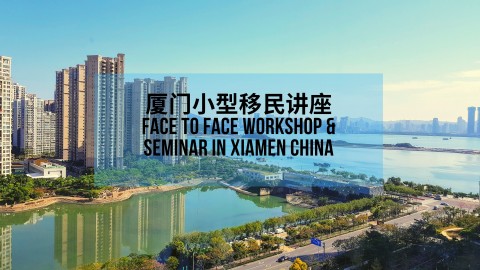Today marks the final day that new invitations for the subclass 489 visa will be issued. With the new subclass 491 visa beginning on 16 November 2019, we farewell the subclass 489 and look ahead to what the future holds.
Call +61 8 8351 9956 Email [email protected]
Most Recent News
All News
From 16 November 2019 the Department of Home Affairs will introduce the new Skilled Work Regional (Provisional) subclass 491 visa to replace the current subclass 489 visa. With many jurisdictions already closed to new nomination applications and invitations ceasing on 10 September 2019, here is what you can do to make sure you are prepared for when they re-open.
Also available in Mandarin Chinese https://youtu.be/R2r8G5RsyFU
Hope you found the video helpful! Remember to subscribe to the Work Visa Lawyers channel for more videos.
Let us help you find your Australian Business Visa options:
The Minister for Immigration, Citizenship, Migrant Services and Multicultural Affairs, the Hon David Coleman MP, has asked the Joint Standing Committee on Migration to inquire into and report on migration in regional Australia.
Employer sponsored visas (including DAMA) can be an attractive option for many migrants, but it is important to remember that you must first find an employer that is willing to sponsor you.
With the new program year just getting underway, there have already been some trends emerging and changes to eligibility in the skilled migration space.
澳洲移民律所Work Visa Lawyers明星移民代理关文婷,南澳州担一姐, 顺利抵达厦门啦!
Our Australian Migration Agent Wendy Guan has just arrived Xiamen, the "most romantic leisure city" in China.
South Australia has released its new State Nominated Occupation List (SNOL) for skilled migration, and its good news for prospective migrants. State nomination applications will be open again at 12pm (ACST) on 3 July 2019.
Immigration SA has announced it will temporarily halt the granting of new business migration state nominations after it reached its quota from the Australian Government for the 2018/19 program year.
Popular News Tags
Services
Sign up to our Migration Newsletter
Copyright © 2026 MARA Code of Conduct Privacy Policy Disclaimer Site Map
Office: 212 Port Road, Hindmarsh, SA 5007, Australia
Post: PO Box 3057, Hilton Plaza, South Australia, 5033, Australia
ABN: 75 889 635 782














